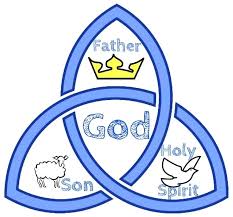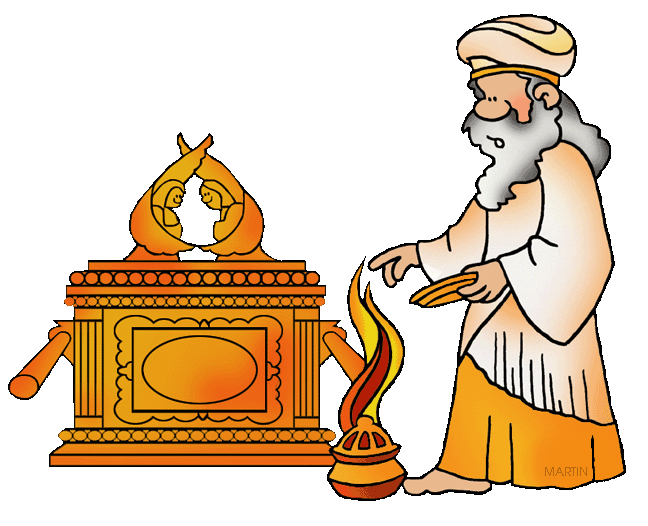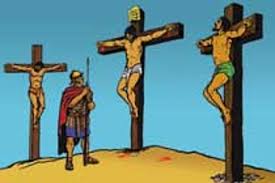John 15:18 – "If the world hates you, know that it has hated me before it hated you."
As the disciples go forth to establish the church and spread the gospel around the world, they should not expect a warm welcome from everyone. In fact, they would be hated and opposed by many (I John 3:13, Matthew 10:25).

However, this was not something new to them. They had been with Jesus for years and he had encountered the same treatment. Jesus did not allow opposition from the proud, the wealthy, the learned or those in power to deter him from his mission. He did not allow persecution, threats or difficulties to slow him down.
Consequently, the disciples need not be troubled when they encounter such opposition, because it proves they are on the right path – the same path that Jesus walked. He is to be the example the disciples will follow when they too face opposition.
John 15:19 – "If you were of the world, the world would love you as its own; but because you are not of the world, but I chose you out of the world, therefore, the world hates you."
Here Jesus reveals the cause or root of the hated his followers will experience:
Unbelievers have malice towards God deep within their hearts and they hate anything that reflects or resembles Him.
Jesus has 'chosen us out' or separated us from the world. We are now new creations in Christ; old things have passed away and all things are new (II Corinthians 5:17).
We now possess the nature, disposition, inclinations and desires of our Holy Father. We display his attributes including righteousness, justice, love and mercy. We are led by his Holy Spirit.
By contrast, unbelievers have the nature, disposition, inclinations and desires of their father, Satan. They display his attributes including evil, tyranny, hate and judgment. They are under the influence of the spirit of antichrist.
Since the two groups have interests, desires and goals that are diametrically opposed, it is logical that the world will despise, resist and actively combat those who follow Christ.
However, as Jesus mentioned earlier, his followers are not to act in that manner. We must obey his commands so that we can abide in him and he can abide in us. According to Jesus the greatest command is to love others:
Matthew 22:37-39 - Jesus said unto him, You shall love the Lord your God with all your heart, and with all your soul, and with all your mind. This is the first and great commandment. And the second is like unto it, You shall love your neighbor as yourself.
In addition, the parable of the Good Samaritan shows us that our 'neighbor' is actually anyone we come into contact with (Luke 10:25-37).
Therefore, we must have compassion for the lost. Don't think of the 'lost' as a vague, nameless, faceless group. We must recognize them as the individual people we come across every day - people who think they are superior to us, people who take every opportunity to mock our God, people who disrespect the gospel, people who are confused and people who dislike or even hate us for no reason.
We must show them love, when they show us hate. We must show them mercy, when they show us judgment. We must show them good, when they show us evil.
Does that sound like a difficult task? Here is something to keep in mind - at one time, each one of us was under the same satanic deception as they are:
Titus 3:3 - For we ourselves also were once foolish, disobedient, deceived, serving various lusts and pleasures, living in malice and envy, hateful, and hating one another.
So when you look at them, you should be able to see/recognize the place where you came from (or the place you were headed). Perhaps you see the sins or sinful attitudes that once controlled you too.
If that is the case, our compassion for them should bubble up to the surface of our lives. We need to demonstrate that compassion by standing strong in the face of opposition and lovingly sharing the gospel message, which Holy Spirit can use to open their spiritual eyes and bring them to Christ.
John 15:20 – "Remember the word that I said to you: 'A servant is not greater than his master.' If they persecuted me, they will also persecute you. If they kept my word, they will also keep yours."
When Jesus says 'remember the word I said to you' he is referring back to a lesson he gave them much earlier (Ezekiel 3:7, Matthew 10:24-25, Luke 6:40, John 13:16).
Basically the lesson teaches that since we are one with Christ, we can expect the world to treat us the same way it treated him.
Certainly, as we just mentioned, there were many who rejected Christ. But at the same time, there were also those who believed and trusted in him. The disciples themselves are examples of this. So as we sow the seeds of the gospel message into the world, we can rejoice knowing that many souls will be won to Christ. These dear souls will then become our brothers and sisters, who will stand side-by-side with us, laboring in the kingdom.
John 15:21 – "But all these things they will do to you on account of my name, because they do not know him who sent me."
Our study brings up a puzzling question: WHY do unbelievers have such hatred in their hearts towards God? Why do they hate him so much that they fight against him at every turn?
According to Jesus, the answer is simple: Because they do not know him. They are blind to spiritual truth. They do not believe that God sent Jesus into the world. They do not believe that Jesus was the true embodiment of the love, character and law of God.

Consequently, based on their own blindness, they will certainly reject the gospel message.
But God cannot be thwarted by the tricks of Satan.
God has ordained believers to share the gospel of Jesus Christ with the lost. His Holy Spirit is here on the earth, to tear the veil of blindness from the heart of those who hear.
When that happens, their understanding is enlightened and they have a chance to accept the gospel and put their faith in Christ. Because of the convicting power of Holy Spirit, they can have their sins forgiven, their bodies healed and their souls delivered from the power of darkness. They can become children of God.
John 16:8 - And when he [Holy Spirit] is come, he will convict the world of sin.
The disciples now have multiple good reasons to labor for the gospel, even if that work includes persecution:
- Sharing the gospel/loving your neighbor is a direct command of God.
- We were once sinners, just like those who persecute us.
- Our persecutors are blind to the love and true nature of God. As we share the gospel message, Holy Spirit will give them a chance to see the light of Christ and repent.
John 15:22 – "If I had not come and spoken to them, they would not have been guilty of sin, but now they have no excuse for their sin."
This statement of Jesus should not be understood in the absolute sense. In other words, whether Christ came to earth or not, the Jews were still guilty of sin because they broke the law.
What Christ reveals here is that the Jews are now guilty of a specific/particular sin – unbelief and rejection of the gospel message. In addition, their guilt is now greater (and utterly inexcusable) because they have been given ample information which proved that Jesus was the Messiah who was predicted by their own prophets.
We might paraphrase the words of Jesus this way – 'If I (Jesus) had not come down to earth in human form and personally preached the doctrine of salvation to the Jews and then confirmed that doctrine by miracles/signs/wonders, then the Jews might have a reason to hold onto their unbelief, at least to some degree.
However, because I DID come to earth and I DID preach the gospel to them and I DID confirm the message with signs and wonders, they have no excuse for their obstinate sin of unbelief. They knew the truth, they willfully rejected it.
This confirms a truth found all throughout the scriptures – our guilt will be in proportion to the light we possess and the mercies we reject (see Matthew 11:20-24, Luke 12:47-48).
John 15:23 – "Whoever hates me hates my Father also."
Jesus now confirms that the sin of the Jews was no insignificant crime. They persisted in hating and persecuting Christ, despite the fact that he had performed (before their very eyes) numerous miracles which could only be performed by divine power.
The Jews claimed to love God while rejecting Christ, but this is not possible. Because Jesus and the Father are one, no one can hate one without hating the other (John 14:7-9, John 10:30). Rejection of Jesus is the same as rejection of Father God.
John 15:24 – "If I had not done among them the works that no one else did, they would not be guilty of sin, but now they have seen and hated both me and my Father."
The works that Jesus speaks about here are miracles. He compares his miracles to the miracles done by others. To the Jews this meant Moses and the prophets (Elijah, Elisha, etc).
Jesus did a greater number of miracles in a shorter span of time than any of the prophets. Scriptures record seven miracles done by Elijah and 14 by Elisha. Jesus brought about more miracles in a single night then these two men did their entire lives (Matthew 4:24).
 Plus, Moses and the prophets had no power within themselves to perform miracles of any kind; they called upon the name of the Lord and asked for him to perform the miracles (Exodus 8:8-13, Exodus 8:29-31, etc). It would be far more accurate to say that God performed miracles through the prophets. Jesus, however, performed miracles in his own power, by his own authority, using his own name.
Plus, Moses and the prophets had no power within themselves to perform miracles of any kind; they called upon the name of the Lord and asked for him to perform the miracles (Exodus 8:8-13, Exodus 8:29-31, etc). It would be far more accurate to say that God performed miracles through the prophets. Jesus, however, performed miracles in his own power, by his own authority, using his own name. The miracles of Jesus were also greater in intensity. Elisha prayed and the Shunammite's son was brought back to life within a matter of hours (II Kings 4: 33-36). Jesus raised Lazarus from the dead after he was dead four entire days! Jesus was able to heal a man born blind, a miracle which had never been done by anyone before:
John 9:32 - Since the world began was it not heard that any man opened the eyes of one that was born blind.
So it is easy for us to see that Jesus did miracles among the Jews that no other person (Jew or Gentile) had previously done. This is significant, because the Jews correctly believed that only God could perform miracles. Since Jesus performed so many miracles, it was clear proof that he was the Messiah; God had openly manifested his divinity in the Son.
Consequently, the Jews could not claim that Jesus was a mere mortal man. He HAD to be the Messiah and as such, they HAD to believe in him. To hate and reject Jesus was to hate and reject Father God too.
John 15:25 – "But the word that is written in their Law must be fulfilled: 'They hated me without a cause.'"
In this case (as in other places in scripture) the term 'Law' is used to mean the Law, the Psalms and the prophets; it basically refers to the entire Old Testament.�
The scripture that Jesus references here is probably Psalms 69:4, which is a Messianic Psalm but the words are also found in Psalms 35:19. These verses were penned by King David to express the truth that he was an innocent man; his enemies hated him for absolutely no reason.
Although that was true on some level for King David, Jesus tells us that the ultimate fulfillment of that scripture was occurring in his own life, right at that time. His enemies, the Jews, hate him for absolutely no reason.
Jesus had not broken any laws. He had not injured or killed any of his fellow man. He never disrespected God or his country. Even in the midst of all their hatred towards him, Jesus still sought the welfare of the Jews. He still offered them mercy and invited them to turn to him for salvation, which they continued to refuse.
Thus, Jesus has explained to the 11 remaining disciples that the Jewish rejection of himself as the Messiah was not a surprise to him or to the Father. It had been predicted many times in the Old Testament scriptures (see especially Isaiah 53:3-9).
John 15:26-27 – "But when the Helper comes, whom I will send to you from the Father, the Spirit of truth, who proceeds from the Father, he will bear witness about me. And you also will bear witness, because you have been with me from the beginning."
Jesus once again reintroduces the promise of the gift of Holy Spirit (John 14:17). Keep in mind that the context of this promise is the adversarial role of the unbelieving Jews.
In every generation, there will be those who mock and rage against the truth of the gospel. They not only reject the truth themselves, they will attempt to shake the faith of those who do believe, just as the Jews did during the incarnation of Christ.
But we do not need to fear them. Jesus has given us the gift of Holy Spirit, who bears witness within our hearts that Jesus is the Son of God. He will crush the attempts of Satan to nullify the truth of God in our lives. The end result is that we know that we know, we are saved by the blood of Christ.
Romans 8:16 - The Spirit himself bears witness with our spirit, that we are the children of God.
Nothing can shake us from this truth; by the power of Holy Spirit we will boldly witness about Christ in the midst of all opposition.
Meanwhile, the unbelief of the Jews is completely inexcusable. They have rejected the doctrine of Christ, even though his mission was confirmed with signs and wonders. By rejecting the Son, they also reject God the Father. They are in an extremely dangerous spiritual position. In a further attempt to save them, Jesus sends his Spirit to convict them of sin (John 16:8) – particularly the sin of unbelief.

Holy Spirit will accomplish this conviction by working through the preaching and miracles of the apostles to influence the hearts of the lost. If they further reject/resist the wooing of the Spirit, there is no option left to them; they will eventually experience the wrath of God.
Obviously, the same is true today. Sinners routinely reject the gospel, but Holy Spirit will continue to convict them in an effort to reunite them with God. We know this is true, because we have experienced it ourselves.
This highlights the extreme importance of sharing the gospel message. God has given us the privilege of partnering with Holy Spirit to bring the lost into God's kingdom. We do the talking, he does the convicting and souls are saved.
This explains how 'faith comes by hearing' (Romans 10:17) – Christians share the truth of the gospel message and Holy Spirit infuses life into the words and gives the hearer faith to believe in Christ.
It is God's will that the whole earth hear his message. If we say nothing, God will use someone else to witness for him and we will miss the chance of a lifetime – a chance to help Holy Spirit bring another soul to repentance.
Let me offer you some encouragement:
Holy Spirit is not a 'force' or a 'power' or an 'it'.
Our text (verses 26-27) clearly speaks of him as a person (see also John 16:7-8, 13-15); he has a gender (male), he exhibits emotions and possesses intelligence. He is a member of the Godhead/Trinity; he is divine as are the Father and Son.
Holy Spirit is living in the heart of every believer. As we will discover later in our study of the gospel of John, Jesus has sent him to comfort, lead/guide, teach and empower you in your Christian walk.
How well do you know the Spirit? Can you hear when he speaks to you? Are you walking with him daily? If not, I encourage you to cultivate a closer relationship with Him.
Let me offer you some relief:
You may have noticed that people do not necessarily 'get saved' when you share the gospel message. In fact, you may have shared the gospel with the same person multiple times and they still have not surrendered their life to Christ.
If this is the case with your friend or loved one, let me give you some relief – it isn't your responsibility to save them. Your job is to love people and share the message. It is Holy Spirit's job to ignite faith within the hearer so that he/she becomes convicted of sin and accepts Christ as savior.
So if you are struggling in your witness for Christ, make sure you stick to doing your part and allow Holy Spirit to do his!
Let me offer you some strength:
We noted in our study that there will be opposition to the gospel and its messengers; Christians are hated and opposed by many.
Frankly, the possibility of persecution can be frightening. In our own strength and ability, we would not have the power to stand against it. But here is the good news - you don't need to trust in your own strength.
Acts 4:31 - And when they had prayed, the place was shaken where they were assembled together; and they were all filled with the Holy Spirit, and they spoke the word of God with boldness.
One of the functions of Holy Spirit is to empower the saints, giving us the boldness to share our faith and stand firm in the face of trouble. If you are lacking boldness in your witness for Christ, ask Holy Spirit to fill you with his power.








































 twelve, as Jesus was clearly their superior, and this menial task was always performed by servants.
twelve, as Jesus was clearly their superior, and this menial task was always performed by servants. 



